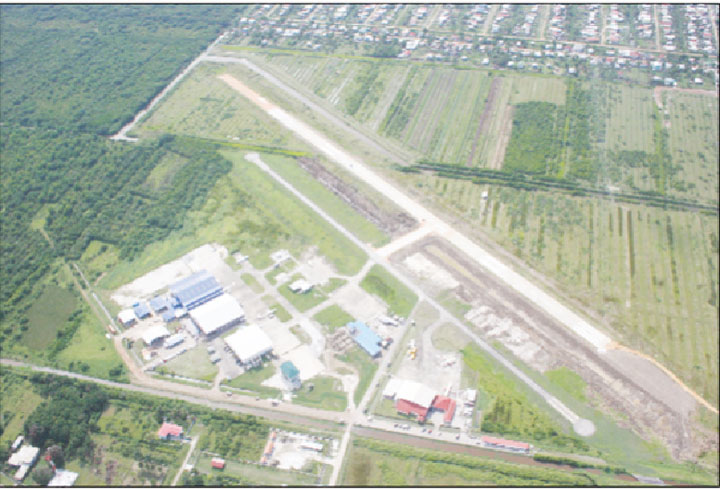The success of the Ogle International Airport project represents “a startling reminder” of how private investment can be used to take the country forward by sharing with government the burden of infrastructure development costs, Chairman of Ogle Airport Inc (OAI) and Chief Executive Officer of Trans Guyana Airways Michael Correia Jr has said.
In a speech to mark the certification of the facility as a Regional Class Airport, Correia said the success of OAI was due to the fact that it has been managed “by an experienced, capable and careful private sector team.” Correia disclosed that having utilised US$6 million in investment capital, “the airport is fully compliant with international standards and is already recognised as one of the best small regional airports in the Caribbean.”

According to Correia, the airport has trebled its primary domestic business under private management over the past ten years and has arrived at a stage of its development where it delivers over 100 aircraft movements every day. And Correia is predicting that the next five years will see “a significant increase in regional traffic and will provide Guyanese and visitors with a variety of travel options.”
In his address, Correia described the Ogle Airport project as unique for Guyana “in that it came in the form of a public/private sector partnership.” And alluding to the “huge cost-benefit gain” to Guyana, the aviation sector executive noted that the project “has cost the Guyanese tax payers absolutely nothing to build. There is no debt for the government to repay. OAI has been given no corporate tax relief; no property tax relief. OAI pays a lease and shares the passenger revenue with the government. “We have estimated that the Government of Guyana and, therefore, the people of Guyana, will, as a result, benefit from over 50% of the future profit of OAI,” Correia said.
According to him, the Ogle International Airport “is a prime example of one of the many businesses listed in the National Development Strategy, which gave birth to the National Competitiveness Strategy.” Correia issued a call to President Donald Ramotar to “renew and re-energise” the National Competitiveness Secretariat by appointing a competent director from the private sector. “The National Competitiveness Strategy is a public/private partnership institution that must be made to function as it was intended. It must not be allowed to fail,” Correia said.

Meanwhile, Correia is calling on government to put in place “a comprehensive long-term infrastructure development plan” to support the growth that is occurring in the economy. “National development and expansion, inevitably, will create its own chaos. Our traffic jams will get worse, particularly on the East Bank Road and in our city. The challenge of waste disposal and pollution as we grow will continue to overwhelm us and possibly foster sickness and diseases. Our drains will continue to overflow and flood us out. Climate change will bring in the sea. All of this can happen, unless we plan and administer strategically,” Correia added.





